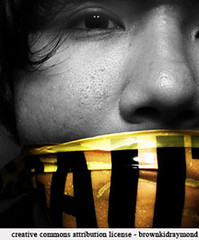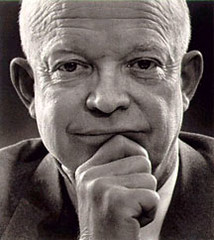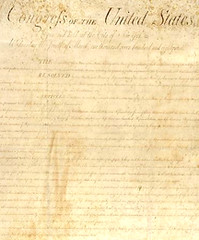Sure, people think stories are supposed to land in the laps of journalists out of convenience, but that's not true. Most stories are fabricated out of thin air, with journalists chasing hunches, for better or worse. We mostly hope it will be for the better, but often, it's for the worse or, more precisely, something in between.
All stories are made by the tellers.
The very first article I ever wrote was not much more than speculation. I was a university student enrolled in a basic reporting class when a 6-foot-8 football player injured two security guards at a fraternity party. One of the wounded guards had his face slashed when he was thrown through a window.
Since the fraternity was sanctioned by the university and the Greek house was on the university grounds, I wondered whether the school could be held liable. To prove my hunch, I called more than a half dozen attorneys until I found one willing to be quoted. He said, simply put, that any decent attorney could bring a liability suit against the school. It was couched in the idea that any attorney could sue anybody for anything, but I left that part out when I talked to other sources.
I also left the part out when I learned what was said by asking the coordinator of campus standards what she thought. She said she feared the lawyer was right, especially because all events that serve alcohol must be approved by the fraternity's adviser, her office, and the university president. Without a waiver of liability, at minimum, even the idea that the event would even need security guards was an admission.
It was a great story, but one that never sat well with me despite being the reporter. I had opened up a can of worms because of what had occurred at the frat party despite no liability suit ever being filed. And worse, several people who trusted me enough to speak candidly found themselves in hot water.
Yes, anyone can assume that new policies must be made. But that's not the point of this piece. I want to offer it as evidence that facts are not magical truths but malleable constructs. Even someone with a college sophomore's worth of experience can do it in a few hours. Despite no liability suit in existence, the article I wrote resembled fact, even if it remained untested in court.
Facebook's policy change is the right course.
I have many friends who are fearful of Facebook's upcoming policy changes on fact-checking. They think Facebook and other Meta platforms will descend into a misinformation free-for-all akin to what they think happened on X when Elon Musk bought Twitter for $44 billion.
"It's time to get back to our roots around free expression. We're replacing fact checkers with Community Notes, simplifying our policies and focusing on reducing mistakes," said Mark Zuckerberg in his video.
My view is slightly different, but then again, I was one of the mistakes Zuckerberg is talking about. My original Facebook account was shut down by fact checkers who mistook fictional stories as political statements. Specifically, when the network's strict policy was implemented, it retroactively lit my account up like a Christmas tree because some of the characters in my stories were wrong or politically incorrect or whatever. And unfortunately for me, neither the algorithm nor the fact checkers could tell the difference. Their decision would be akin to All In The Family being taken off the air for whatever Archie said.
It was a painful experience, largely because I had years of personal memories attached to the account, alongside 1,400 people eagerly awaiting my debut novel. My connections to them were gone overnight.
The state of media today isn't always a matter of fact.
Technology is an excellent and crazy thing. Every day, today's journalists do just what I did as a college student except with a zillion times more efficiency. They use platforms to call for experts on this subject or those with very specific beliefs. Then, they elevate those voices to weave together stories with all the strength of reality. Those stories, in turn, are then used to silence other stories that are either late to the party or slanted away from a preferred narrative.
Fundamentally, this is what was wrong with third-party fact checking all along. People operated with different facts, and then fact checkers used their biases to decide which might be right, even if none were correct or much more than a theory.
Even some of Meta's own employees struggle to see this as problematic, saying that Meta is "sending a bigger, stronger message to people that facts no longer matter, and conflating that with a victory for free speech.” But they are wrong.
Facts do still matter. But the Internet has to work out that the pendulum went too far in one direction by building a foundation of "facts" that weren't really facts and then judging all other evidence or speculation or theory against a fabricated set of standards. As Mark Twain once said: “Facts are stubborn things, but statistics are pliable." And words, I might add, are even more pliable than that, given how much bodies of fiction — in books and film and online — shape our moral compasses.
Give the policy change its day. You might be surprised to find that the old adage about free speech that I learned as a journalist will hold true: The abuse dies in a day, but the denial slays the life of the people and entombs the hope of the race.


































